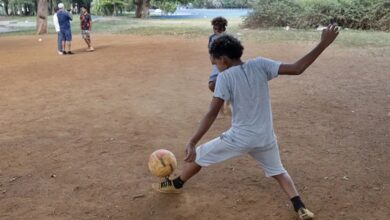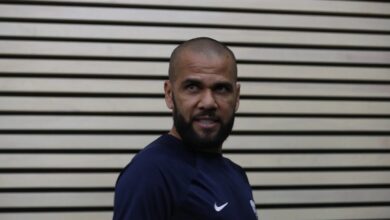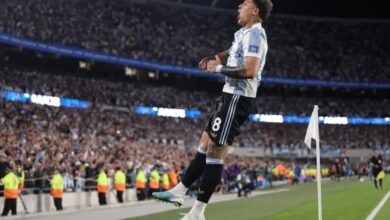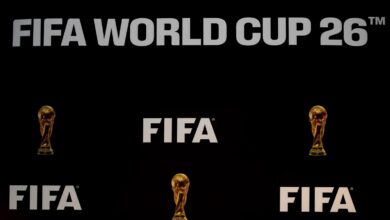Lionel Scaloni, The Youngest Coach To Be World Champion
Argentine Lionel Scaloni became the youngest coach to win a World Cup last Sunday. However, 4 years ago he was unknown to most of the world of football and today he is in charge of finally giving the World Cup to Lionel Messi and the long-awaited third to all of Argentina.

Photo: AFA
LatinAmerican Post | Santiago Gómez Hernández
Escucha este artículo
Leer en español: Lionel Scaloni, el entrenador más joven en ser campeón mundial
Of the one born in Pujato, Santa Fe, only his career as a soccer player was known. If it is true that he did not get to occupy the great covers of Argentine soccer, he was an outstanding player. He trained at Newell's Old Boys in Rosario but had to reach Estudiantes de la Plata to later be able to leap to Europe at Deportivo de La Coruña. He made history in the Galician team, being part of Superdepor, winning the first and only League for the modest squad. He was a figure of the team and an idol in La Coruña. Later, he would go to look for glory in the West Han of England, but he did not achieve the same thing that he achieved with the balquiazules at the time. Later, he played for Racing Santander, Lazio, and Mallorca, before retiring at Atalante.
History With José Nestror Pekerman
However, possibly his most influential figure as a coach was José Nestor Pekerman, a successful coach in youth categories. Scaloni was called up to the U-20 team led by Pekerman, playing in the 1997 World Cup in Malaysia, and becoming the world champion.
Also read: Messi and 5 more reasons why Argentina was crowned world champion
Likewise, he went to play in the U-23 Olympic team. However, he failed to qualify for the Sydney Olympics. And he had to wait 3 more years to reach the senior team, in 2003. He was called up regularly (with some absences). What helped him to be summoned for the 2006 World Cup in Germany, where he only played against Mexico? The coach of that team: none other than Pekerman.
Just like his teacher, Scaloni decided to start his career as a coach, first in the Mallorca youth team. He then came to the AFA as a member of Jorge Sampaoli's coaching team, which he served until the 2018 World Cup in Russia. When Sampaoli left, Scaloni continued to lead the U-20 team together with Pablo Aimar. Faced with the impossibility of finding an optimal coach for the team (possibly waiting for Marcelo Gallardo to accept), Scaloni temporarily assumed the position of senior coach to direct 2 FIFA date commitments. But the good impressions generated by the albiceleste made the directors of the Federation officially entrust him with the position of coach.
From there, to today, Scaloni has won as Argentina's coach: a Copa América, a Finalíssima, and a World Cup. All this, only 7 years after his retirement as a professional footballer. And winning 3 titles in less than 2 years. Unthinkable for most of those times when Scaloni arrived in a "transitory" way.
The Communion Between Billardism And Menottismo: Scalonismo
A few years ago, Argentine soccer was divided into two schools to lead: one headed by Carlos Salvador Bilardo and the other by César Luis Menotti. Billardism was the interpretation of a more scientific football, of studying the rival and trying to win at any cost. On the other hand, Menottismo went to the essentials of Argentine soccer, individual talent, and good ball handling. Well, today, Scaloni can unite both. For the world champion coach, the desire to win permeates the competitive spirit. But without giving up the good game and individual skills of each player, especially Messi's talent.
Scaloni has been characterized as a modern technician. It points to a direct game, without much formality. It is a team that knows how to defend, that trusts its defensive module, with players like Cuti Romero and Otamendi who are strong in melee, just like in the air. However, as soon as the team recovers, it must start its way to the goal.
He knows and handles the idea of high pressure that modern football demands today. But he does not give up giving priority to talented players like Messi himself and Di María, who today are still not capable of running 90 minutes.
However, even though he prefers recovery after a loss, he also knows that there are rivals that require more elaboration from him. It is here where he has full-backs very high, and with a Messi who can develop from outside the area, almost giving him the best similarities to his time at Barcelona.




